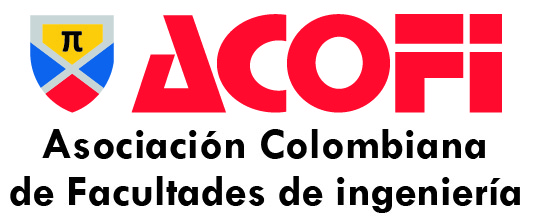Electronic engineer profile: skills as a network of relationship of offer actor - educational demand
DOI:
https://doi.org/10.26507/rei.v1n2.34Keywords:
electronic engineering, education, network, competences, profile, curriculumAbstract
This paper proposes a perspective in which a profile is a system of competences that is constructed from a relationship between the education offer, the demand and the intermediaries among these two sectors. The article shows a systemic model of competences that involves four dimensions that are articulated as a network; the labour, the occupational, the personal and the academic competences.This model is applied to the comprehension of the process by which the profile on the electronic engineer is constructed. The analysis began with a research developed by the authors of this article, during the years 2004 to 2006. This research was promoted by the National Council of Professional Electric and Mechanic Engineer and Other Similar Professions- section belonging to Cundinamarca (Colombia).
The authors found that the differences among the educational offer and social demands is associated to a problem of connectiveness between the related actors.
Downloads
References
SHUMAN, Larry; BESTERFIELD – Sacre, Mary & McGourty, Jack (2005). The ABET “Professional Skills” – Can They Be Taught? Can They Be Assessed? Journal of Engineering Education, January, Vol. 94, N°. 1, pp. 41 – 55
Consejo Profesional Nacional de Ingenierías Eléctrica, Mecánica y Profesiones Afines – Seccional Cundinamarca (2005). Definición del perfil del ingeniero electrónico que la sociedad demanda, Marzo, Bogotá.
OIT, Centro Interamericano de Investigación y Documentación sobre Formación Profesional, Cinterfor (2000). Conceptos básicos de competencias laborales. www.cinterfor.org.uy
HERNÁNDEZ Arroyave & Juan Carlos (1999). Los procesos de estructuración de programas de formación para el trabajo para jóvenes. Aproximaciones. Corporación País Joven, Bogotá.
GÓMEZ BUENDÍA (1998). Educación, la agenda del siglo XXI. Tercer Mundo Editores, Bogotá.
BARRIOS, Edgar (2000). Gestión de Competencias, INTECAP, Febrero, Guatemala.
OCDE (1999). Definition and selection of key competence. Paris.
MERTENS, Leonard (1996). Competencia laboral: Sistemas, surgimiento y modelos. Cinterfor, Montevideo.
LATOUR, Bruno (2005). Reassembling the Social: An Introduction to Actor-Network- Theory (ANT),
Oxford University Press.
CALLON, Michel; LAW John, Easton (1998). De los intereses y su transformación. Enrolamiento y
contraenrolamiento. En Doménech; Tiradop, Sociología simétrica. Ensayos sobre ciencia, tecnología y sociedad, Barcelona: Editorial Gedisa, pp. 51- 62.
CALLON, Michel (1995). Algunos elementos para una sociología de la traducción. La domesticación de las vierias y los pescadores de la bahía de St. Brieuc. En J.M Iranzo, J.R Blanco y otros, Sociología de la ciencia y la tecnología. Consejo Superior de Investigaciones Científicas, Madrid, pp. 259-282.
HANNEMAN, Robert (2001). Introduction to Social Network Methods. Deparment of Sociology. University of California.
GARCÍA, Antonio (2003). La Industria Electrónica en Colombia: Una necesidad social apremiante. Impulso, Edición Nº 2, Noviembre, pp. 1-3.
DUQUE, Mauricio; GAUTHIER, Alain; GÓMEZ, Rafael; LOBOGUERRERO, Jaime; PINILLA, Alvaro; Rafael AUBAD; LÓPEZ, Hugo (1999). Formación de ingenieros para la innovación y el desarrollo tecnológico en Colombia. www.minas. unalmed. edu.co/facultad/publicaciones/dyna/128/
formacion.html
TECNOS (2005). Brechas tecnológicas en educación superior Área electro-electrónica. Documento de Trabajo, Bogotá.
Centro Nacional de Consultoría (2002). Percepción de imagen que tienen las empresas empleadoras en Bogota, de las universidades que ofrecen carreras de ingeniería. Fase Cuantitativa, Bogotá.
Downloads
Published
How to Cite
Issue
Section
License
Total or partial reproduction of the documents published in the journal is authorized only when the source and author are cited.
| Article metrics | |
|---|---|
| Abstract views | |
| Galley vies | |
| PDF Views | |
| HTML views | |
| Other views | |









